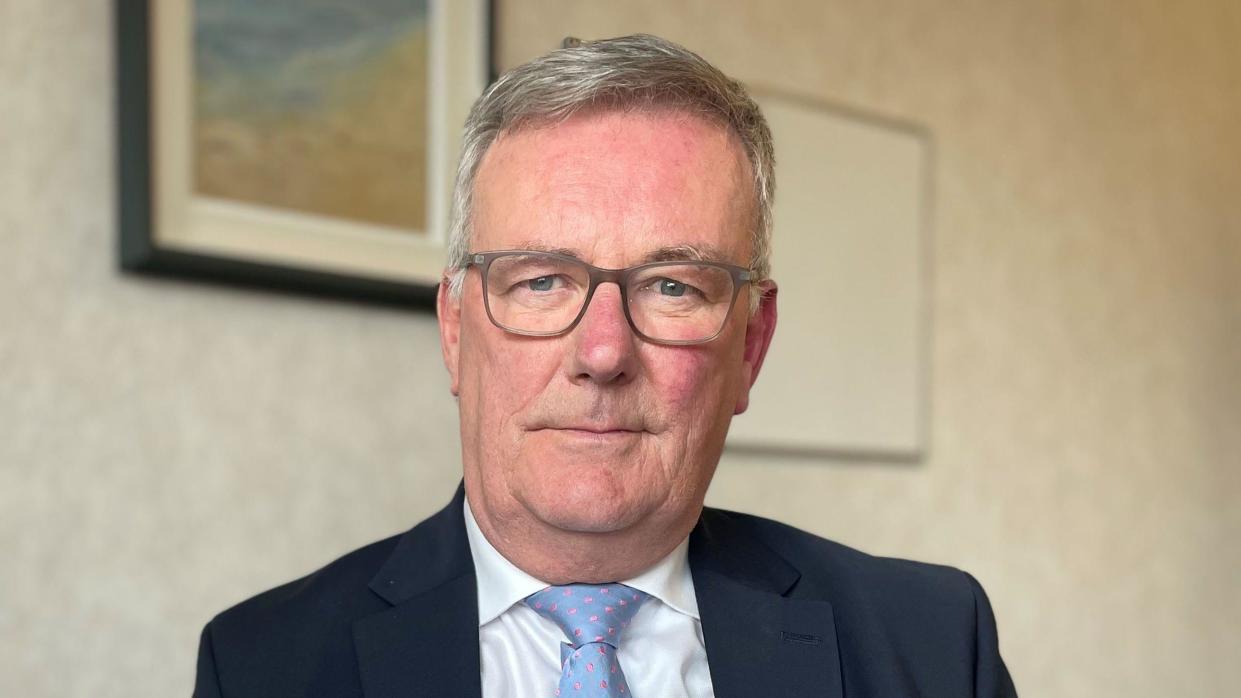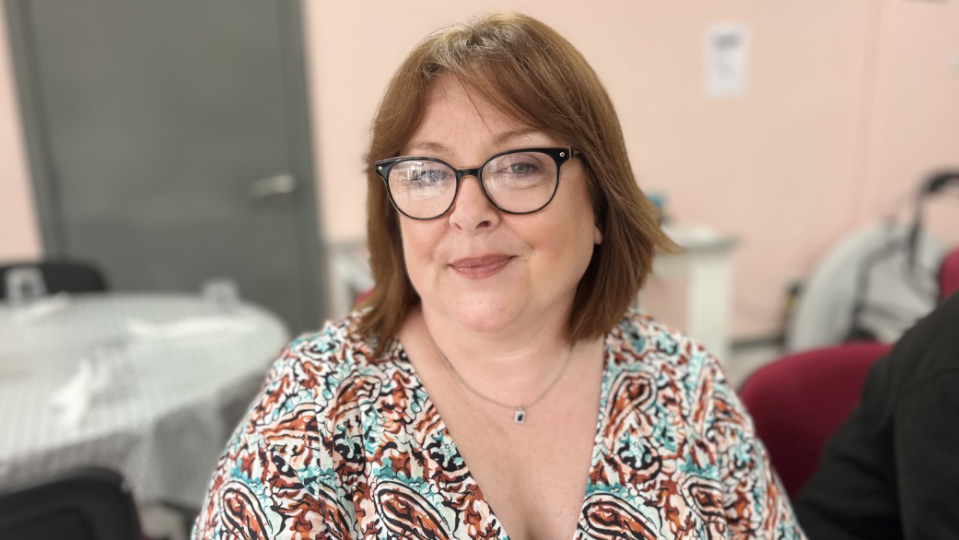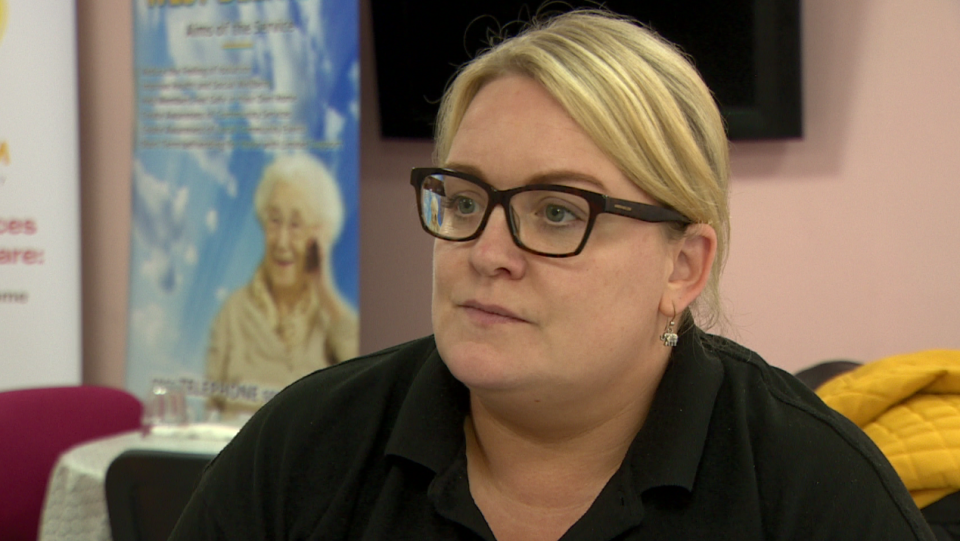Health gap between rich and poor 'unaccceptable'

Tackling inequalities between the poorest and wealthiest must be central to health reform in Northern Ireland, the health minister has said.
"How can it ever be acceptable that women in our most deprived communities can expect to live 14 fewer years in good health than those in the least deprived communities?" Mike Nesbitt said.
"This is not acceptable in a first world country."
Announcing a series of plans over the next six months, Mr Nesbitt said a "Live Better" pilot would be rolled out, initially in two specific locations.
"We're doing this with a limited budget," he said.
"There are a lot of services already existing, we're going to repackage them and we're going to flood an area...taking services to the community."
Some of the services in the test locations will include screening, vaccination, mental health and emotional well-being support for those who need it most.
Speaking to BBC News NI, Mr Nesbitt said the plan had to be tested to "prove that it makes a positive difference to people's lives".
"Once we have done that we will roll it out," he added.
"Then I'll go back to my executive colleagues and ask them to join in, because we have to tackle the socio-economic issues, we have to tackle the environmental issues and we have to encourage people in terms of their lifestyles."
According to the Department of Health, based on data from England, it is estimated that health inequalities cost Northern Ireland up to £1.7bn every year including health costs, lost productivity, economic inactivity, and poor educational outcomes.
'I didn't realise the deprivation'

Ann-Marie Ferguson, director of care services at Ardmonagh Family and Community Group in west Belfast, said her eyes had been opened since she came into the post a year ago.
"The inequality here is prevalent," she said.
"I was reared in west Belfast and I didn't realise the deprivation, the impact that it has had on this community.
"It's quite sad to see, nobody lifts their heads any more. People are struggling with mental issues and cost of living issues and there just doesn't seem to be the help."
She said there needed to be better communication within the health service.
"No-one's talking to each other - social workers aren't talking to GPs, GPs aren't talking to district nurses," she said.
"We provide a domiciliary care here too. My personal view is that we're the backbone for that at the minute, we're the link in the chain."

Gemma McKeron, a support worker at the centre, said they had hosted clinics to try to address health inequalities.
"Things like a Covid jab clinic," she said.
"We've also had our second wellness and wellbeing clinic and also a menopause clinic so it means that people in the local area aren't at a disadvantage."
Mr Nesbitt said he had decided to test the initiative in two areas because he was working within a very tight budget and finite resources.
"I think it would be irresponsible to say we're trying something new and spread it out very broadly or to find it doesn't return the type of resources I think it will," he said.
"So let me go out and test it and prove it first."
'Reboot the health debate'
In a "reboot" health debate and reform, Prof Rafael Bengoa is to return to Northern Ireland in the autumn.
The professor chaired the panel that produced the 2016 "Systems not Structures" report on changing health and social care.
"I believe Prof Bengoa will help reboot the public debate on health reform," Mr Nesbitt said.
"Unfortunately, that debate has become increasingly distorted with reform too often misconstrued as a cost cutting programme, or a plan to close hospitals.
"This is damaging the objective of genuine reform which is to deliver better outcomes."
Over the next six months the minister is due to announce the publication of the hospital reconfiguration review which will spell out how hospitals across NI will be reorganised and which services they will provide.
That paper “Towards a Hospital Network" will be go out to consultation this summer.
"The direction of travel is to specialist areas," he said.
"If I need a procedure and my local health facility does it once a week, or the one 20 or 30 miles away does it 10 times a day, five days a week I know which one I want to go to."
A three-year strategic plan for health and social care will be published in the autumn covering the remainder of the current assembly mandate.
What is the Bengoa Report?
The Bengoa Report was commissioned by Northern Ireland ministers seeking advice on how to improve services, cut waiting lists and care for an ageing population.
Written by experts, led by Prof Rafael Bengoa, the findings were published in October 2016.
Following this, the then Health Minister Michelle O'Neill launched a 10-year plan called Delivering Together
Its 18 time-specific action points were based on 14 recommendations from a government-appointed panel.
However, the executive collapsed in 2017 which prevented this plan being fully implemented.


